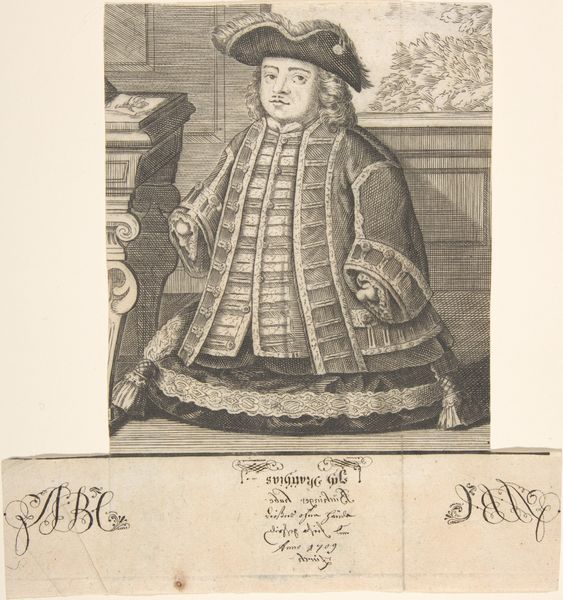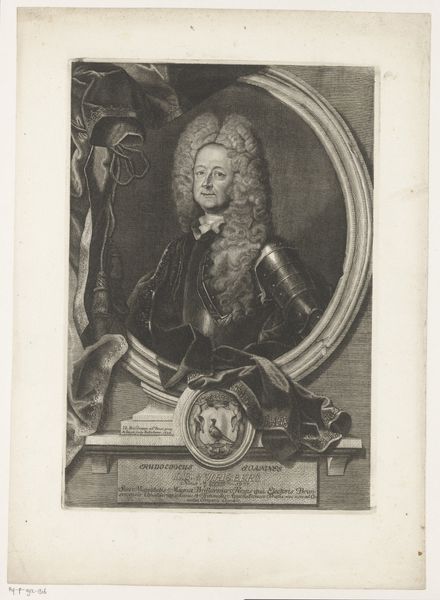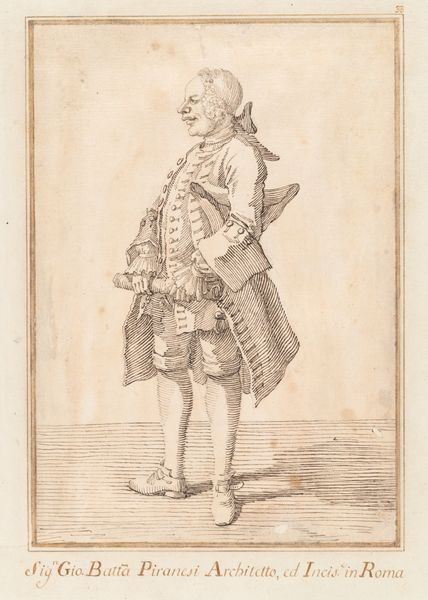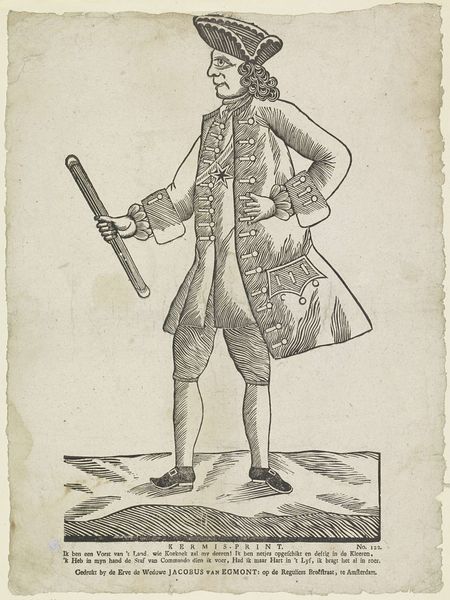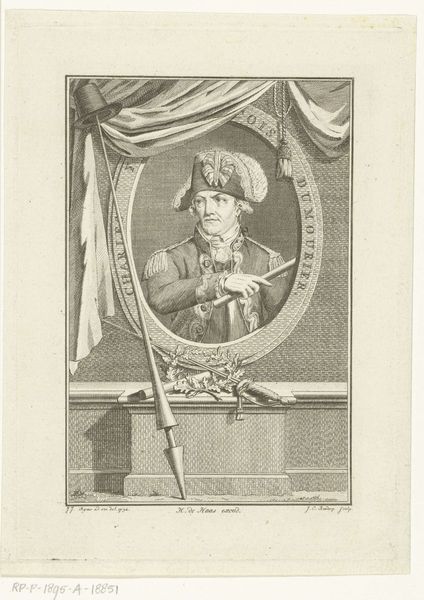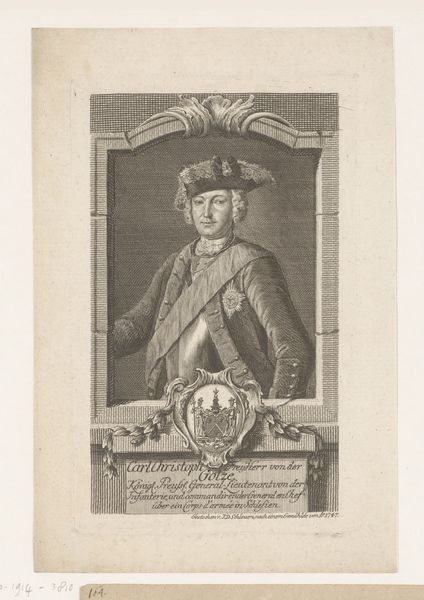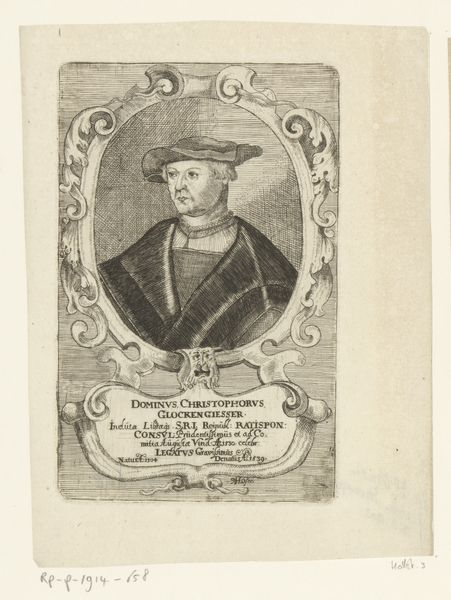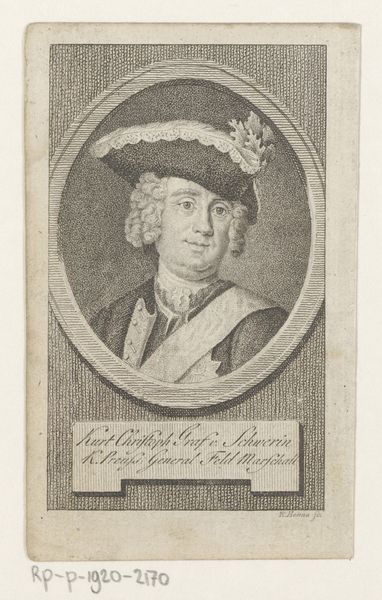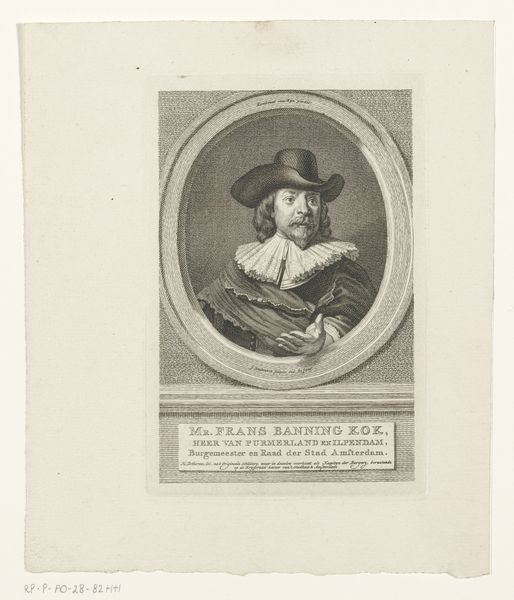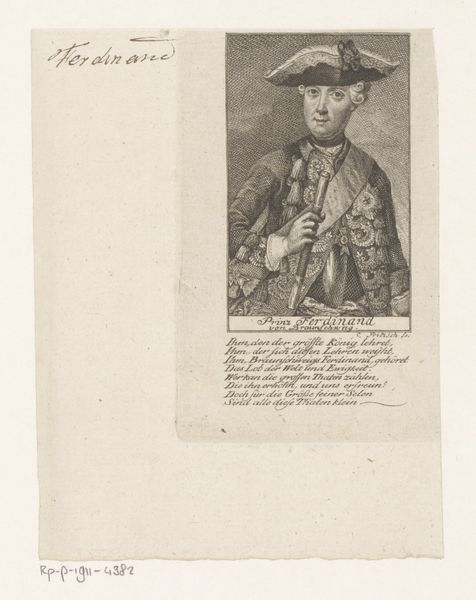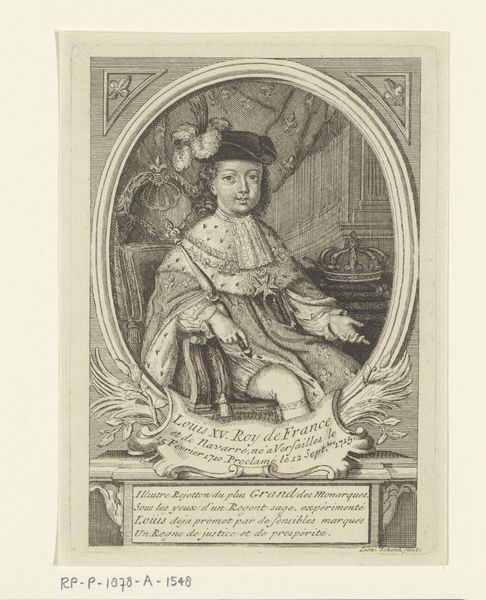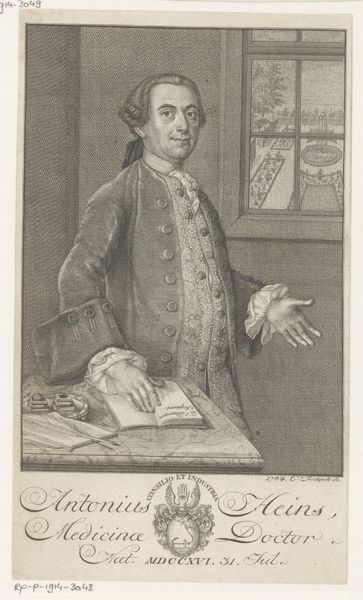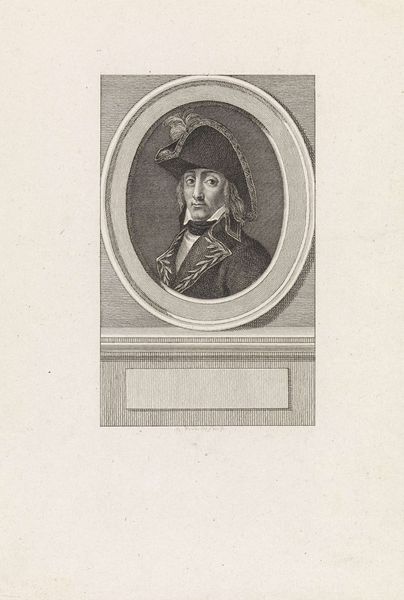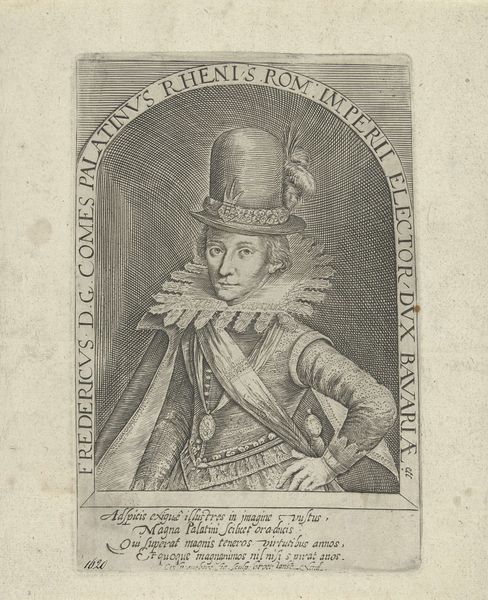
print, etching, engraving
#
portrait
#
baroque
# print
#
etching
#
old engraving style
#
history-painting
#
engraving
Dimensions: height 195 mm, width 116 mm
Copyright: Rijks Museum: Open Domain
Editor: Here we have "Portret van Franz Ulrich von Kleist," created sometime between 1720 and 1775, an etching and engraving now residing at the Rijksmuseum. What strikes me immediately is the frame within a frame – almost like looking into a historical peep show! It has an imposing feel. How do you interpret this work, given its rigid, Baroque formality? Curator: Ah, yes, it does have that carefully constructed feel, doesn't it? Imagine Herr von Kleist sitting, perhaps for hours, while the artist meticulously captures his essence. It's not just a portrait; it’s a performance of power. See how the frame echoes the Baroque style, reinforcing that sense of grandeur and the subject's importance? It makes me wonder, who was Franz Ulrich von Kleist, and what was Gottfried August Gründler trying to convey about him? Did he succeed, I wonder, in capturing more than just appearances? Editor: That's a great point about the "performance of power". It's almost like the artist is solidifying his status as well. I wonder if this type of art reflected something particular about the people commissioning it. Curator: Indeed. And don't you think prints like this were crucial for disseminating power, literally multiplying the image of Kleist? Every print became a mini-billboard, announcing his existence to the world. The crisp lines and precise detail further accentuate that power. Almost, wouldn’t you say, like a political statement? Editor: I didn't think of it as propaganda! That really changes my understanding. Curator: It’s easy to overlook those layers when we're used to such immediate image consumption today. What seemed static then feels rather revolutionary now. It reminds us art has always played a crucial part in the staging of society and self. Editor: I hadn't considered it that way. Thanks, that gives me a lot to consider.
Comments
No comments
Be the first to comment and join the conversation on the ultimate creative platform.
